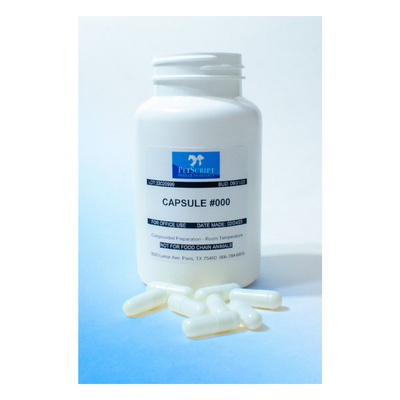Understanding the Perks and Uses of Fenbendazole in Vet Medicine
Fenbendazole has established itself as a key anthelmintic in vet medicine. Its capability to target various parasitic infections makes it a useful tool for veterinarians. The medicine's system disrupts crucial mobile processes in bloodsuckers, leading to effective therapy outcomes. However, its safety and security account ranges types, demanding mindful factor to consider in its usage. Understanding these characteristics can drop light on fenbendazole's broader effects in veterinary treatment and continuous study into its possible beyond typical applications
System of Action of Fenbendazole

Common Parasitical Infections Treated With Fenbendazole
A range of parasitic infections are effectively treated with fenbendazole, making it a flexible choice in veterinary medicine. This anthelmintic agent is particularly efficient versus nematodes, consisting of roundworms and hookworms, which frequently affect pet dogs and felines. It is likewise utilized for the treatment of cestodes, such as tapeworms, supplying a broad range of action versus both types of intestinal tract parasites. Furthermore, fenbendazole is useful in handling infections brought on by protozoa, particularly Giardia, which can cause intestinal distress in pets. Its efficiency reaches treating specific lungworms in dogs and felines, dealing with respiratory health concerns connected to these parasites. In general, fenbendazole's capability to target numerous parasitical varieties makes it an important device in veterinary technique, ensuring the wellness and health of animals impacted by these common infections.
Safety and Effectiveness in Various Pet Types
The security and efficiency of fenbendazole differ among different animal species, underscoring the relevance of species-specific factors to consider in vet medication. In pooches, fenbendazole is normally well-tolerated and efficient versus a visit variety of gastrointestinal bloodsuckers, including roundworms and hookworms. For felines, nevertheless, its usage is less common and might require mindful application due to prospective unfavorable responses.
In livestock, such as cattle and lamb, fenbendazole shows performance versus different endoparasites, adding to boosted health and wellness and efficiency. The pharmacokinetics and possible side results can vary noticeably in between types, demanding mindful analysis by vets.
Horses likewise respond positively to fenbendazole, specifically for treating strongyles and ascarids, though dose and management courses have to be customized to their one-of-a-kind physiology. Understanding these distinctions is crucial for optimizing treatment results and ensuring animal welfare throughout diverse types.
Administration and Dosage Guidelines
Appropriate management and dose standards are crucial for optimizing the restorative impacts of fenbendazole while lessening prospective adverse effects. The dosage generally differs depending on the varieties being dealt with, the certain condition, and the solution of fenbendazole utilized. fenbendazole 444. For pet dogs and pet cats, a common dose is 50 mg/kg body weight, carried out daily for 3 consecutive days, but vets may adjust this based upon private health assessments
It is crucial to administer fenbendazole with food to enhance absorption and reduce gastrointestinal trouble. The drug is available in numerous types, including granules and paste, enabling adaptable management alternatives. Monitoring the pet's reaction throughout and after therapy is recommended to validate effectiveness and safety. Additionally, veterinary advice is crucial to determine the proper duration of therapy based on the kind of parasitic infection being attended to, assuring excellent end results for the pet's health and wellness.
Future Point Of Views and Research Study on Fenbendazole
Study on fenbendazole remains to evolve, concentrating on its possible applications past traditional antiparasitic usages. Recent research studies have actually discovered its performance in dealing with different forms of cancer, particularly in basics veterinary oncology. Preliminary data suggest that fenbendazole may hinder the growth of lump cells and boost the impacts of various other chemotherapeutic agents.
In addition, researchers are exploring its role in handling stomach problems in animals, highlighting its anti-inflammatory residential properties. The adaptability of fenbendazole for various types questions concerning its security accounts and perfect application programs in varied populations.
As passion expands, there is a demand for thorough scientific tests to develop evidence-based standards for these novel applications. Future study may also investigate the mechanisms behind fenbendazole's effects, possibly leading the way for ingenious restorative methods in vet medicine. check that The continuous expedition of fenbendazole might substantially enhance therapy options for numerous veterinary problems.

Often Asked Questions
Is Fenbendazole Safe for Pregnant Animals?
The security of fenbendazole for expectant pets continues to be unpredictable. While some studies suggest minimal danger, vets commonly suggest caution and commonly encourage against its use during pregnancy unless the advantages clearly exceed possible dangers.
Can Fenbendazole Be Utilized in Animals?
Fenbendazole is typically made use of in animals to deal with various parasitic infections. 222 mg. Its efficiency versus stomach worms makes it a valuable anthelmintic, adding to improved wellness and efficiency in animals increased for food and fiber
What Are the Negative Effects of Fenbendazole?

The negative effects of fenbendazole might consist of intestinal disturbances, sleepiness, and allergies. In uncommon instances, a lot more serious reactions could take place, necessitating careful tracking and consultation with a veterinarian during therapy.
Just How Does Fenbendazole Compare to Other Dewormers?
Fenbendazole uses broad-spectrum efficiency versus different parasites, usually comparing positively to other dewormers. Its special system targets different life stages, making it reliable, while usually offering a desirable safety profile contrasted to alternatives offered on the marketplace.
Can Fenbendazole Be Utilized for Dealing With Cancer in Pets?
The possibility of fenbendazole in treating cancer cells in pet dogs has gathered rate of interest. Initial research studies suggest it may hinder cancer cells cell growth, but further research study is essential to verify its efficiency and security in veterinary oncology.